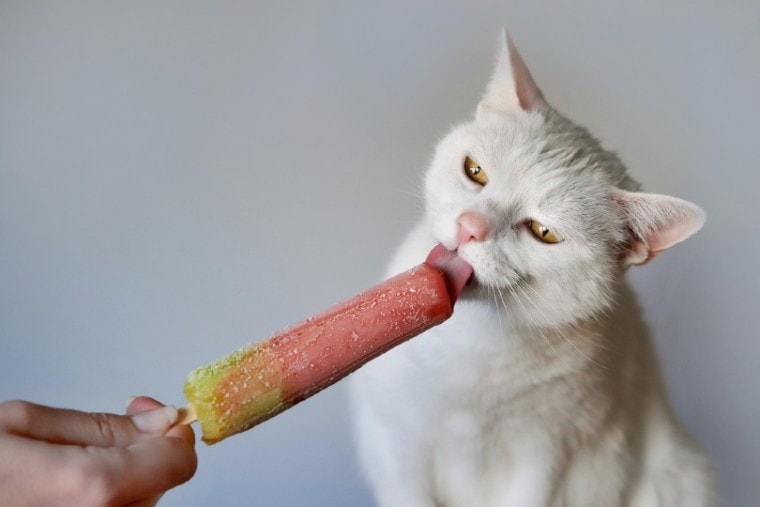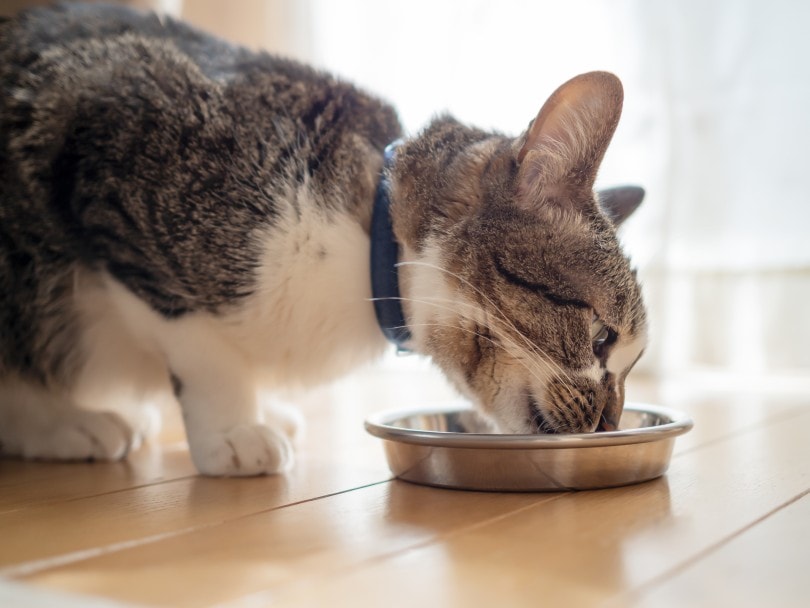
Most mammals have taste receptors on their tongues that enable them to assess incoming tastes from their food. Humans have five: sour, bitter, salty, umami (meaty), and sweet. It’s natural to assume that our cats have a similar relationship with taste, especially the one that we seem to crave the most: sweetness.
However, studies have shown that cats cannot taste sweetness or sugar, so even though you want to give your cat a sweet treat, they cannot taste it at all! Cats are primarily meat-eaters, obligate carnivores that need animal protein in their daily diet, which is likely why they do not need sweet taste receptors.
With taste being such an intrinsic part of our human experience, it may be difficult to believe that cats do not have the same range of taste as we do. In this article, we look deeper at what science says about this unique phenomenon and what it means for your cat. Let’s dive in!
Cats Cannot Taste Sweetness
A study published in 2015 1 shows that cats lack the specific receptors on their tongues to taste sweetness. It was conducted by the Monell Chemical Senses Center and found that one of the two genes necessary for the sweetness receptor got switched off at some point, most likely millions of years ago. This is not surprising, as most cat owners know that their cats would choose a bowl of chicken over a bowl of ice cream any day of the week. Most people assumed it was a matter of preference rather than a lack of taste.
Since a cat’s diet consists largely of meat, with almost zero need for carbohydrates, it makes sense that they would not have developed the receptors to taste sweetness or at least lost it somewhere.

How Do We Know Cats Can’t Taste Sweetness?
As with most studies, the details are rather complicated, and what led the scientists to their conclusion can be confusing to comprehend.
Most mammals have tiny taste receptors on the surfaces of their tongues, which release compounds that bind with foods as they enter the mouth. These compounds react in different ways depending on the food that is eaten. Signals are sent to the brain, letting it know what flavor something is.
The sweet receptor is made up of two coupled proteins that are generated by two genes, known as Tas1r2 and Tas1r3. In nature, sweet foods are rare and a sign of valuable carbohydrates, an important food source for most plant-eating mammals. Since cats don’t rely on vegetation for sustenance, they lack the amino acids that make up the DNA of the Tas1r2, which would make it impossible to taste sweetness. Interestingly, this occurs in all cats, from your beloved housecat to tigers and lions.
Cats Can Still Taste Bitterness
Even though cats eat a primarily meat-based diet, they can still taste bitterness. This is unexpected because this taste receptor is usually reserved for plants, the primary source of bitterness in nature, which cats—especially in the wild—do not eat much of at all. However, other theories suggest that since cats chew on grass (presumably when they have stomach issues), they retained these receptors.
Most experts believe that cats evolved with this bitterness receptor to also detect poison in foods, and there are a significant number of bitter compounds in nature that are toxic. That said, there are also plenty of healthy bitter compounds in nature, so this theory is questionable. It may also be that cats need to detect potentially toxic substances that their prey has consumed or the bodily fluids of their prey, like bile and venom, that can also be toxic.
Final Thoughts
It’s true: cats cannot taste sweetness. While we may feel sorry for felines in some way because they cannot enjoy a delicious dessert after their meaty meals, it’s probably for the best.
Luckily, your cat doesn’t know what they are missing out on, and a meaty meal is most likely perfectly satisfying!
Featured Image Credit: Alvydas Kucas, Shutterstock








